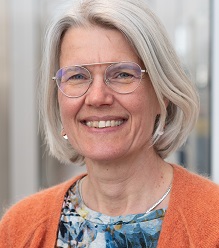DECIDE: Data-driven control of non-EU-regulated contagious animal diseases
In July 2021, the DECIDE project started for a 5-year period. In this project, 19 parties from 11 different countries work together to develop practical data-driven decision support tools in support of day-to-day farm management. DECIDE focuses on respiratory and gastrointestinal syndromes in piglets, broilers, calves and salmonids. Royal GD is one of the partners in the project and is involved in several case studies. Project coordinator is Gerdien van Schaik. She is employed by GD and is a Professor at the Veterinary Faculty at Utrecht University, specialised in 'Monitoring and surveillance of animal health'.
One of the key points in DECIDE is that it started evaluating stakeholder (e.g. farmers and veterinarians) needs with regard to decision-support data tools. For this GD organized several focus groups for cattle farmers. Their input and feedback was taken into account by developing the case studies in DECIDE in which GD is involved in.

Prof. Dr. Gerdien van Schaik
DECIDE Coordinator
"I will not be satisfied until DECIDE has developed practical tools for livestock farmers and their veterinarians that improve the health and welfare of calves, broilers, piglets and salmon."
Case studies
GD is involved in a case study in which a digital dashboard is being developed. This dashboard monitors lab submissions and results for respiratory disease in calves across countries. At the moment, besides GD, laboratories from Belgium, France, Ireland are providing data enabling to get an overview across Europe in a visually attractive manner. Additionally, the dashboard is still expanded by adding data from other countries. At the moment we are working on fully automate the process from lab results to displaying the meta results in the dashboard. The dashboard is freely available for everyone that is interested and can be accessed through the DECIDE website.
In the second case study, GD and Lely work together to evaluate whether it is possible to automatically combine sensor signals and subsequent diagnostic evaluations to detect, treat and prevent respiratory issues in calves.
In a third case study, the French partners model risk reduction scenarios for Bovine Respiratory Diseases in calves at the individual herd level.
Regarding swine, GD is organized focus group meetings with a number of veterinarians in order to gather the wishes and needs from the sector, and thus support vets and farmers with data tools aimed at improving swine health monitoring and disease prevention. This input was used to develop a digital dashboard that will be accessible for farmers and veterinarians. The dashboard will be developed in collaboration with veterinarians and will eventually be integrated in the GD digital platform.
In addition, GD is collaborating in a case study with VION (one of the larger slaughterhouses), in which data from several GD and VION sources will be combined in order to improve swine health monitoring.
In poultry, GD mainly supports all the work conducted by Utrecht University by providing input data and advice on request. They are currently working on a case study in which data from the central antibiotics registration is combined with laboratory data from GD and slaughter data, including foot pad lesion scores. The resulting data set will be used to investigate correlations between health variables and key indicators of flock health at the flock level. The goal is to develop a tool which gives insight into key indicators, by providing data visualisations as well as predictive models.
The results of the depicted studies are expected in the coming years. The ultimate aim of DECIDE is that the project will lead to improved use of data by farmers and veterinarians for evidence-based decision making in support of animal health and welfare throughout Europe.